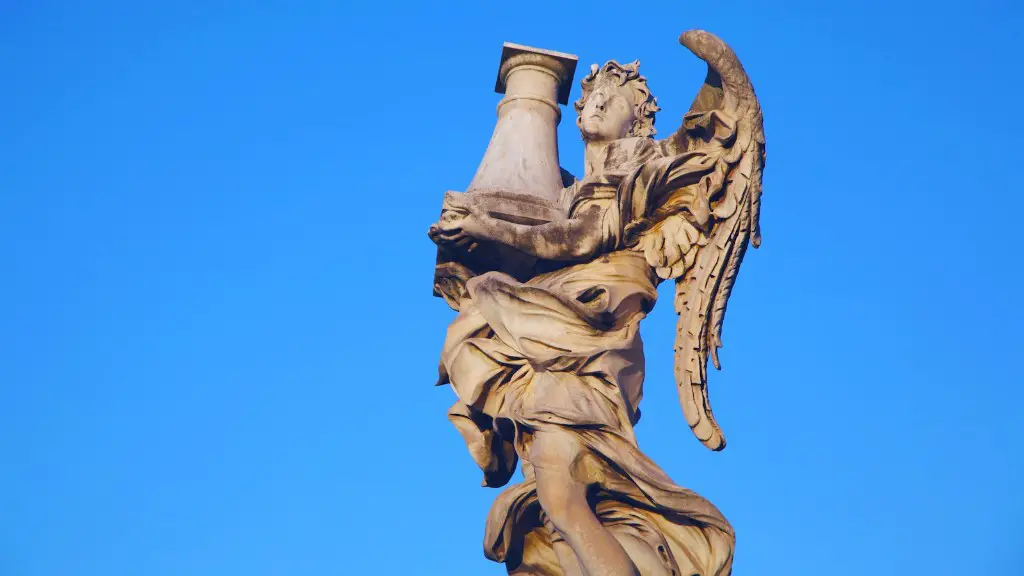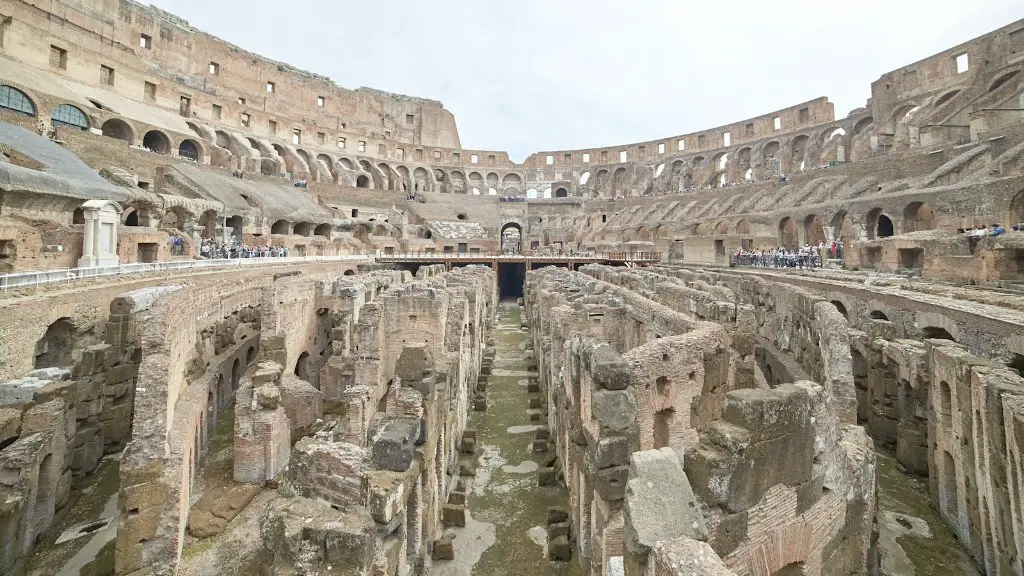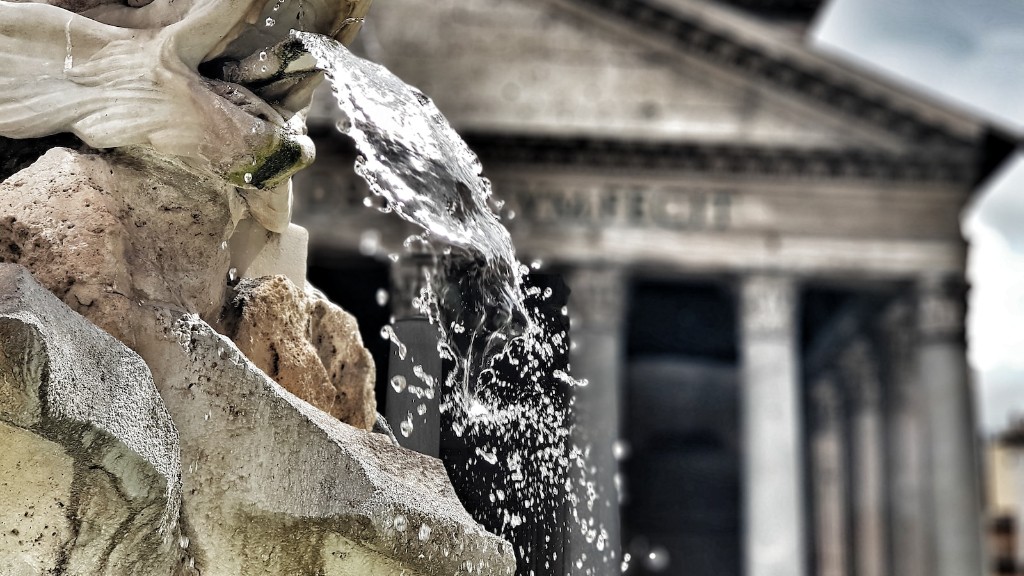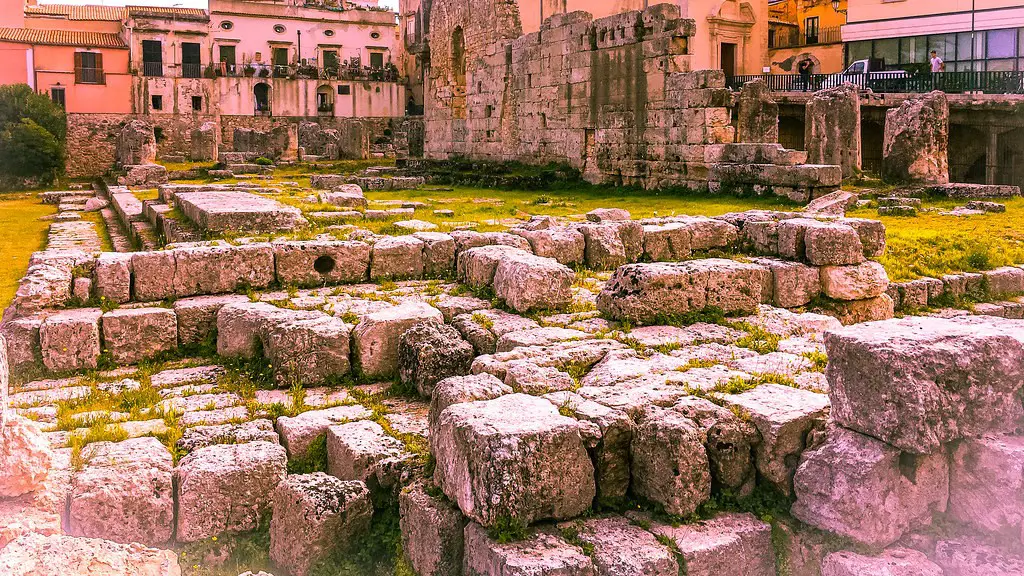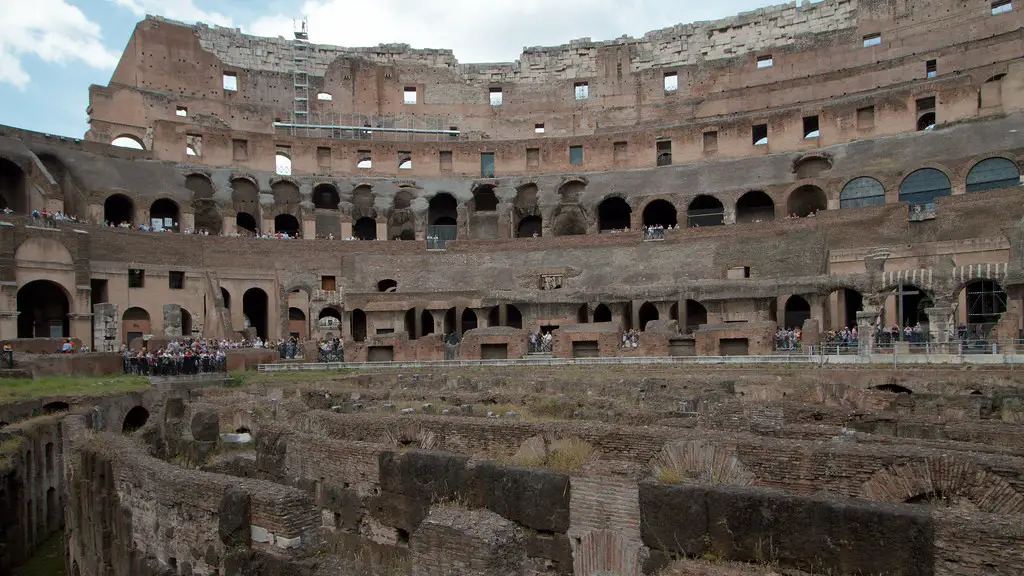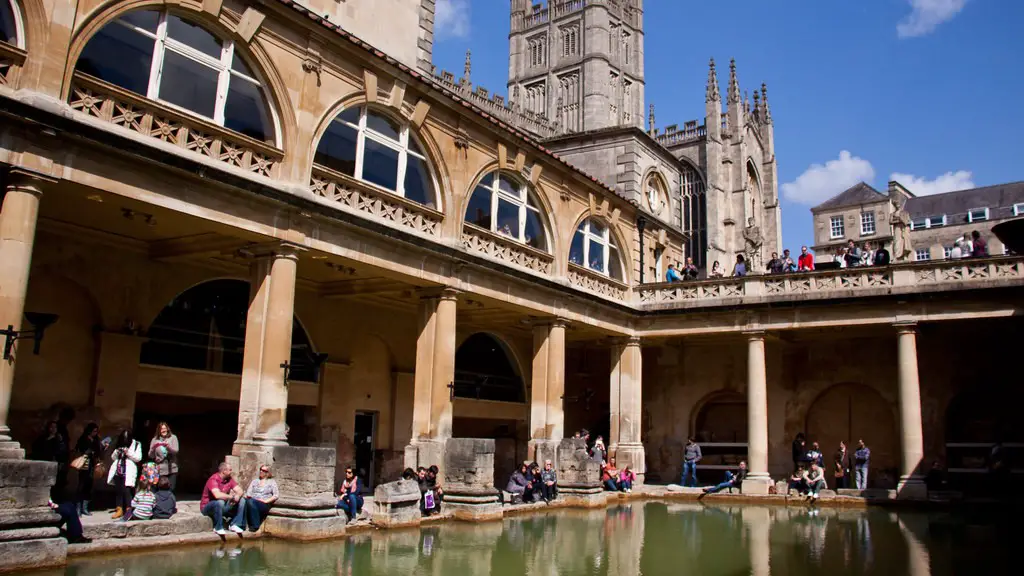Dreams have long played a major role in ancient Rome. From the earliest times, Romans believed that dreams could provide valuable insights into their lives, and that by interpreting their dreams, they could make important decisions. Even today, experts believe that dreams are important for the understanding of the ancient Roman culture and way of life.
Roman mythology was filled with stories of gods and goddesses appearing in dreams to give advice and guidance to mortals. Such stories, as well as various beliefs about the power of dreams, were widely accepted and believed by the ancient Romans. The Roman King Numa Pompilius is said to have been advised by the goddess Egeria in his dreams, which gained him the respect of his people.
Ancient Roman interpretations of dreams focused on symbolism and making connections between the dream world and the real world. They believed that dream symbols had both literal and figurative meanings, and they used these symbols to predict the future and to make important life decisions. Dreams were seen as omens of things to come, and many Romans consulted dream interpreters to help them understand their dreams.
Dreams were also believed to be able to help people understand their personal issues and struggles. Dreams were seen as a way for people to better understand themselves and their relationships, and thus make better decisions. Roman scholars such as Cicero, Seneca and Pliny developed theories and wrote extensively about the value of dreams in understanding the human psyche.
Dreams were also thought to be a means of communication between humans and the gods. Dreams were seen as a form of divine intervention, and by interpreting their dreams, people were able to gain insight into their ultimate destiny. Dreams were believed to be messages from the gods that revealed people’s true purpose in life.
It is clear that dreams played an important role in the lives of the ancient Romans. Dreams were seen as an opportunity to gain insight into their personal struggles and to receive guidance from the gods. Dreams were believed to be messages from the other world and were eagerly interpreted in order to gain insight and make important life decisions.
Ancient Roman Dream Interpretation
Dream interpretation was of great importance to the ancient Romans. They believed that dreams had both literal and symbolic meanings, and they studied them carefully to gain insights into their lives. Dream interpreters often sought to identify the major themes and symbols in a dream, and to connect them to the waking life. Common symbols such as a snake, a river, a tree or a door were often seen as symbols for certain aspects of a person’s life, such as health, emotions, love or money.
Roman dream interpreters used a variety of methods to interpret dreams, including divination and psychoanalytical techniques. They also looked for patterns in a person’s dreams, particularly recurring symbols or themes. Dream interpretations were often used to predict the future or to understand difficult decisions, and some Roman dream interpreters even provided more practical advice, such as advice on business decisions or life choices.
In addition to dream interpretation, the Romans also developed theories about the power of dreaming. They believed that dreams could be used to gain insight into a person’s current situation or to foresee the future. They thought that dreams could be a channel for divine intervention and could provide valuable guidance on important life matters.
Significance of Dreaming in Ancient Rome
Dreams were seen as an integral part of the Roman way of life, and they played an important role in their belief system. According to Roman mythology, dreams were a portal to the gods and could provide valuable guidance and insight. Dreams were also believed to have great predictive power and could provide a glimpse into the future.
In spite of their importance, dreams in Ancient Rome were largely seen as a personal matter. While some used the services of professional dream interpreters, most Roman people kept their dreams private and interpreted them on their own. It was believed that interpreting one’s own dreams would provide the most meaningful and accurate insight.
Dreaming was an important part of ancient Roman life and culture. Dreams were seen as a way to gain insight and to receive guidance from the gods. They were believed to have predictive power and were often interpreted in order to gain insight into the future and to make important life decisions.
Ancient Roman Dream Divination
Dream divination was also an important part of Roman culture. Dream divination was a form of divination that involved the interpretation of a person’s dreams. People would often consult dream diviners to help them interpret the symbols in their dreams and to gain insight into their current lives and future destinies. Dream divination was seen as a reliable way of understanding the will of the gods, and dream diviners were highly respected in the Roman world.
Dream divination involved several steps, including writing down the dream, analyzing its symbols, and consulting an expert. The expert would interpret the dream and provide advice and guidance on the likely outcome of the dreamer’s current life situation. Dream divination was an important part of Roman religion, with many important figures, such as Julius Caesar, consulting dream diviners in order to gain insight.
Dream divination was an integral part of the Roman belief system, and it was believed that by interpreting dreams, people could gain valuable insights into their lives and futures. Dream diviners were highly revered in Ancient Rome, and their interpretation of dreams was seen as a reliable way of understanding the will of the gods.
Dream Cures in Ancient Rome
Dreams in Ancient Rome were not only seen as a form of divination but also as a form of healing. Dreams were believed to be a way of communicating with the gods and obtaining healing from them. People believed that dreams could provide healing from physical and emotional ailments, and many of them would sleep in temples in order to receive healing from the gods through their dreams.
Dream healing was an important part of Ancient Roman medicine, and dream healing methods were even prescribed in the medical writings of the Roman physician Galen. Dream healing techniques such as dream temazecal (mediation), dream prayer and dream offerings were used to obtain healing from the gods. These techniques were believed to open the patient up to divine guidance and to allow them to be healed by the gods.
Dream cures were widely used in Ancient Rome and were seen as a reliable way of seeking healing from the gods. Dream rituals, such as offerings, meditation and prayer, were used to obtain divine guidance and healing. Dream healing was an important part of Roman religion and culture, and it is still practiced to this day in many parts of the world.
Dreams in Ancient Roman Literature
Dreams had a significant influence on Roman literature. Both Homer’s Iliad and Virgil’s Aeneid feature dream sequences in which the gods offer guidance and advice to the protagonists. Later Roman authors, such as Ovid, Plutarch, and Apuleius, also wrote extensively about dreams in their works.
Dreams were often seen as a means of exploring the limits of the imagination and navigating moral dilemmas. This theme is especially evident in Ovid’s Metamorphoses, which features several dream sequences in which characters gain insight into their lives and futures. The ultimate power of dreams is best explored in Apuleius’ The Golden Ass, in which the protagonist’s prayers for divine assistance are answered in his dreams.
Dreams have been a recurring theme in many works of Roman literature since antiquity. They were seen as a way of exploring difficult issues and making moral choices, and they were also used as a way of obtaining divine guidance. Dreams were seen as a valuable tool for navigating different life situations and gaining insight into the future.
Influence of Ancient Roman Dreams Today
Though the practices and beliefs of Ancient Rome may have changed over the centuries, the role of dreams remains an important part of many cultures today. Dreams still retain their predictive power and are seen as a means of accessing divine guidance and increasing self awareness. Dreams are still consulted in many cultures in order to gain insight and make important life decisions.
The importance of dreaming in Ancient Rome is still evident today. Dreams are still seen as a way of accessing the divine and gaining valuable insights into the future. They remain an important part of many belief systems and cultures around the world, and they continue to provide guidance and comfort to many people.
Dreams continue to occupy a prominent place in many modern cultures and belief systems. Dream interpretation is still practiced in many cultures, and dreams are still seen as a source of divine guidance and insight. The powerful role of dreams in Ancient Rome remains evident in the world today.
